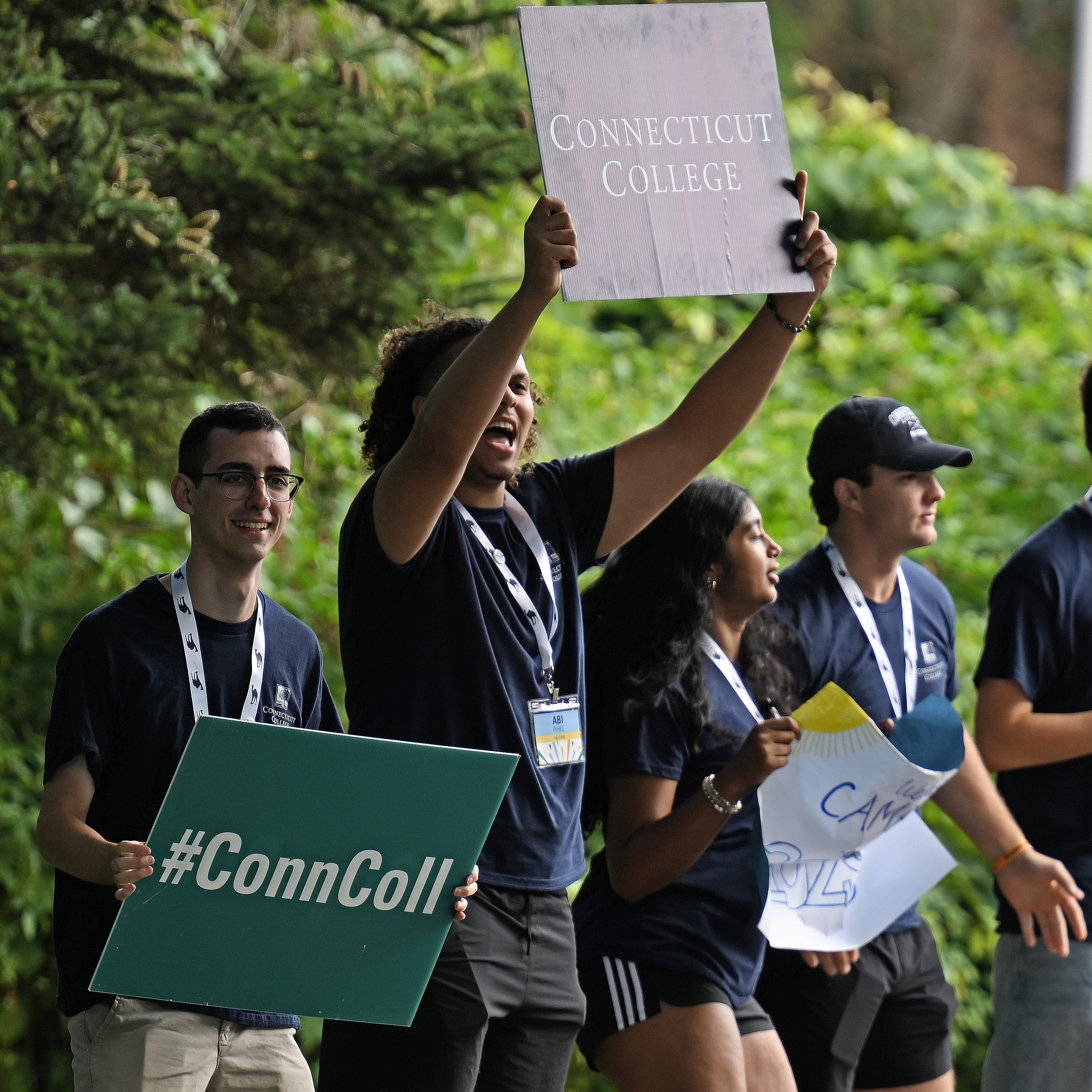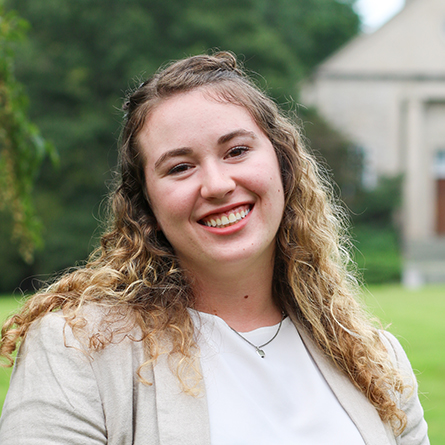
Madeline Washburn Bank ’20 wins the 2020 Oakes and Louise Ames Prize
Madeline Washburn Bank, a dance and art history major and scholar in the Museum Studies Certificate program, was awarded the Oakes and Louise Ames Prize for her honors thesis in the Department of Art History, “The Female Body, Myth, and Sexual Power: Women in Italian Renaissance Art.”
Named for the late president emeritus of the College and his wife, the Oakes and Louise Ames Prize is given to a graduating senior who has completed the year’s most outstanding honors study. The prize is offered by the trustees in recognition of the quality of academic achievement that Oakes and Louise Ames fostered during their 14 years of service to Connecticut College.
Associate Professor of Art History and Chair of the Department of Art History and Architectural Studies Karen Gonzalez Rice, who served as Bank’s thesis adviser, said, “Bank’s multidisciplinary honors thesis is among the most sophisticated and thoughtful projects that our department has produced.”
The trans-historical, genre-defying thesis reconsiders the 15th- and 16th-century Renaissance artworks in the context of Renaissance women’s histories and critiques the ways in which these objects have been de-historicized by cultural institutions in the present so as not to address the sexual violence against women inherent in them.
Bank crafted her own exhibition and choreographed a dance to take place within the exhibition to brilliantly illuminate how violent, misogynistic Renaissance practices continue to shape present-day embodied representations and lived experiences of women’s identities, leveling a piercing critique against Western visual culture and cultural institutions. Bank’s delicate, intricate and deeply investigative dance piece skillfully expresses a visual medium in movement and addresses the long history of the nude in art, articulating through choreographic choices the sexist power structures that appear in the paintings she studied.
Professor of Dance and Chair of the Dance Department Heidi Henderson, who served as the second reader for Bank’s thesis and Dance Department adviser, describes Bank’s choreography as exceptionally daring and praised her ability to create both an evening length dance and a virtual art exhibit grounded by the historical explication in more traditional thesis writing.
“Maddy, a student who came to Conn interested in the romanticism of the Renaissance, has allowed herself to go to a feminist, deceptively beautiful, sometimes grotesque, and always radical place,” Henderson said. “She may think of herself as primarily a historian, but she has grown through her four years, and even more so through this process, into an artist.”

